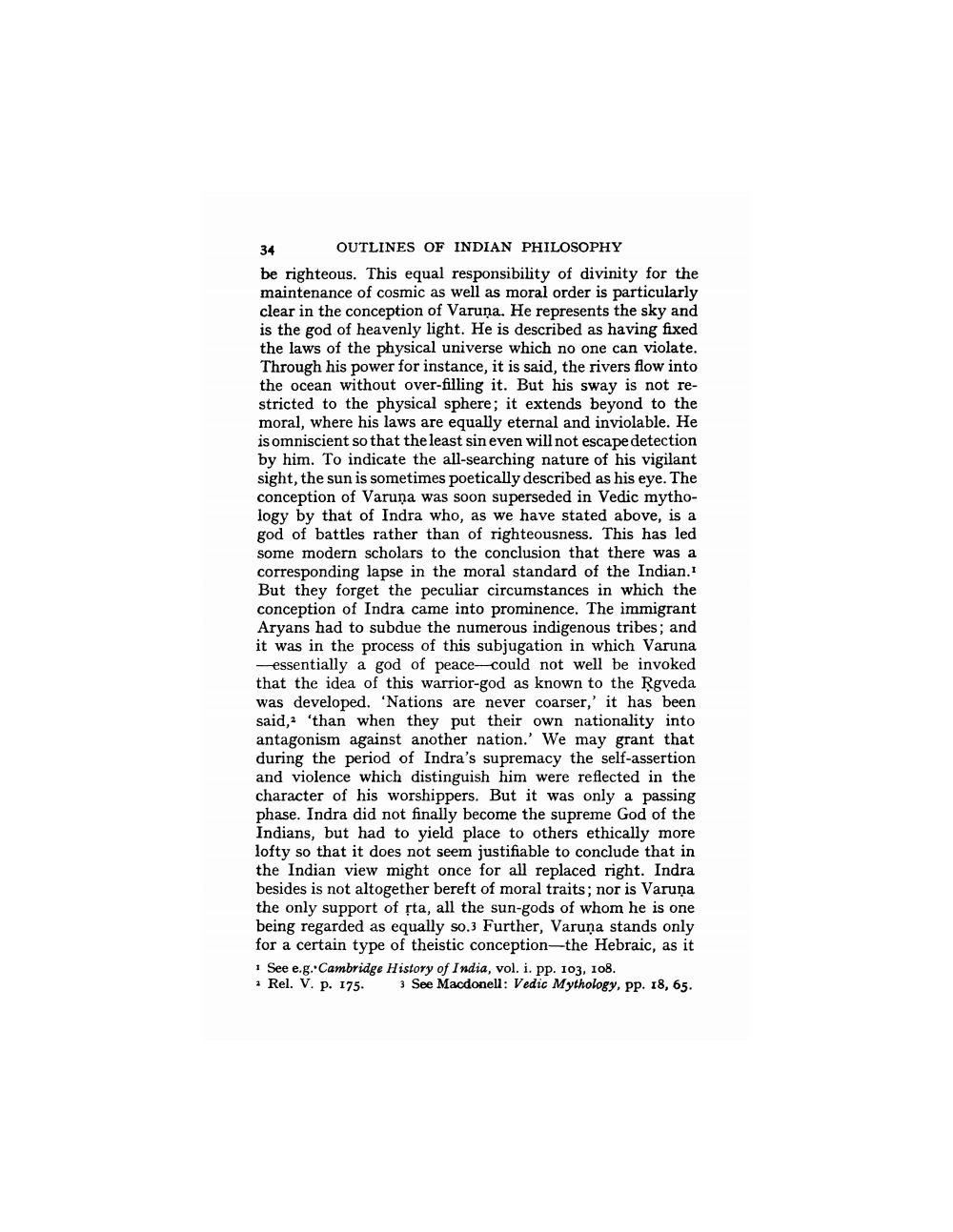________________
34
OUTLINES OF INDIAN PHILOSOPHY be righteous. This equal responsibility of divinity for the maintenance of cosmic as well as moral order is particularly clear in the conception of Varuņa. He represents the sky and is the god of heavenly light. He is described as having fixed the laws of the physical universe which no one can violate. Through his power for instance, it is said, the rivers flow into the ocean without over-filling it. But his sway is not restricted to the physical sphere; it extends beyond to the moral, where his laws are equally eternal and inviolable. He is omniscient so that the least sin even will not escape detection by him. To indicate the all-searching nature of his vigilant sight, the sun is sometimes poetically described as his eye. The conception of Varuna was soon superseded in Vedic mythology by that of Indra who, as we have stated above, is a god of battles rather than of righteousness. This has led some modern scholars to the conclusion that there was a corresponding lapse in the moral standard of the Indian. But they forget the peculiar circumstances in which the conception of Indra came into prominence. The immigrant Aryans had to subdue the numerous indigenous tribes; and it was in the process of this subjugation in which Varuna - essentially a god of peace could not well be invoked that the idea of this warrior-god as known to the Rgveda was developed. 'Nations are never coarser, it has been said, 'than when they put their own nationality into antagonism against another nation. We may grant that during the period of Indra's supremacy the self-assertion and violence which distinguish him were reflected in the character of his worshippers. But it was only a passing phase. Indra did not finally become the supreme God of the Indians, but had to yield place to others ethically more lofty so that it does not seem justifiable to conclude that in the Indian view might once for all replaced right. Indra besides is not altogether bereft of moral traits; nor is Varuņa the only support of sta, all the sun-gods of whom he is one being regarded as equally so.3 Further, Varuna stands only for a certain type of theistic conception—the Hebraic, as it 1 See e.g. Cambridge History of India, vol. i. pp. 103, 108. * Rel. V. p. 175. See Macdonell: Vedic Mythology, pp. 18, 65.




